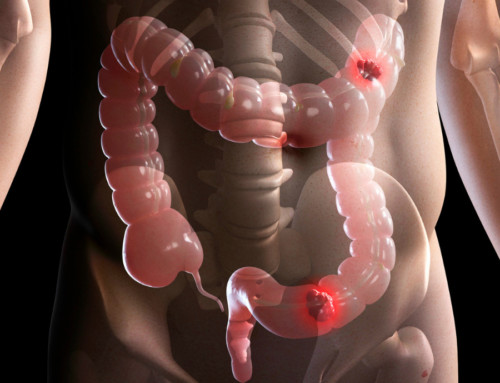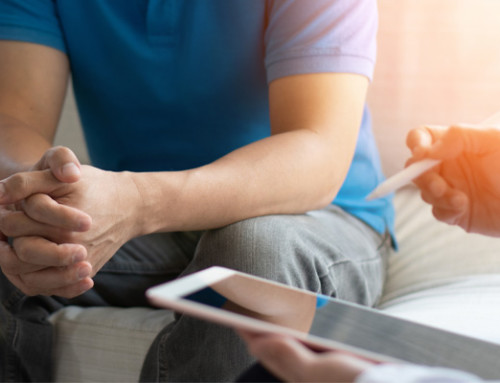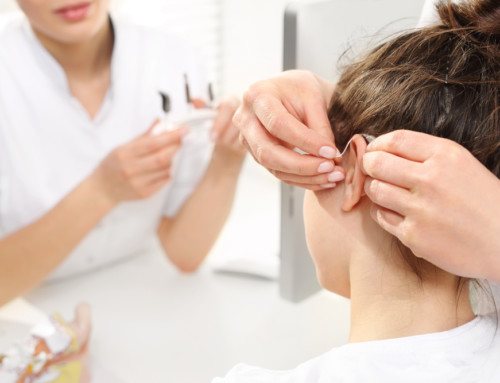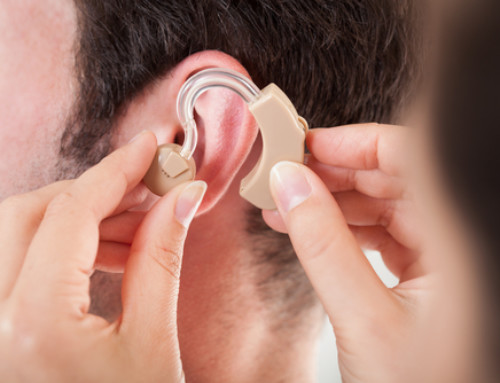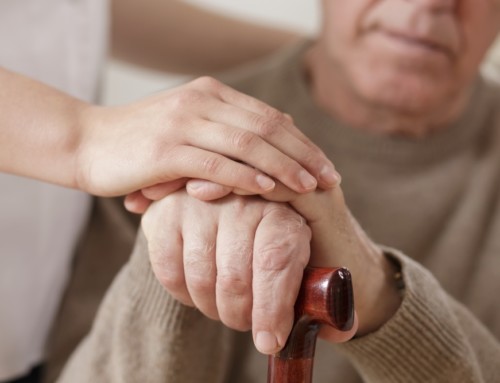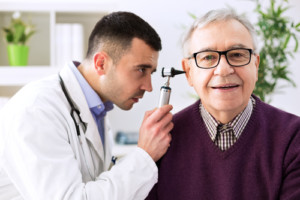 Even though hearing loss is often associated with an older generation, it can affect anyone at any age. In fact, more than 48 million Americans have some degree of hearing loss.
Even though hearing loss is often associated with an older generation, it can affect anyone at any age. In fact, more than 48 million Americans have some degree of hearing loss.
Despite these staggering numbers, the good news is that you can help prevent hearing loss by integrating a few simple practices into your lifestyle. Read below to find out how you can protect your ears (and yourself) to combat your chances of hearing loss.
Be Aware of Risky Noise Levels
Exposure to loud noises can cause both temporary and permanent hearing loss, and elevated decibel levels don’t have to be painful to create permanent damage to your ears. In truth, any loud noises in your everyday environments can also contribute to hearing loss.
You may encounter loud noises in your workplace, your home, or even while participating in a favorite hobby. Any environment that is noisy due to machinery, appliances, people, loud music or videos, and other elements can also damage your hearing over time. To help prevent damage, look for ways to reduce the volume of these noises. If that isn’t a viable option, insulate yourself from the worst of it with earplugs or noise-canceling headphones.
Use Ear Protection
Earplugs or earmuffs can protect your sensitive ear anatomy from damage. In fact, a majority of loud activities and environments (such as auto racing or gun ranges) either require or strongly recommend wearing ear protection to reduce hearing damage or loss.
If you anticipate being in a loud environment, bring appropriate ear protection. Consider taking ear protection with you when you attend a concert, club, movie, sporting event, or fireworks display. Many earplugs come with pocket-sized carrying cases, which makes them convenient and portable. These could come in handy if you find yourself in an unexpectedly loud environment.
If standard earplugs don’t meet your comfort or protection needs, you can have an audiologist fit you with custom earplugs. These types of earplugs will protect your ears while still allowing in quality (and safe) noise.
Keep Headphones at a Safe Volume
You likely use headphones when you listen to music or other types of media, but turning up the volume too high (especially when trying to drown out noise) can cause damage to your ears. Headphones and earbuds project sound directly into your ears and directly against sensitive anatomy, so keep them at a safe volume of no more than 60% of maximum volume to help prevent damage.
Alternatively, you could invest in a pair of noise-canceling headphones. This way, you won’t have to turn the volume up to a dangerous level to drown out external noises.
Don’t Use Foreign Objects to Clean Your Ears
Medical experts agree that using cotton swabs, ear candles, or other cleaning instruments are too dangerous to be worthwhile. It is extremely easy to injure your ear with these objects, and they may impact earwax deep in your ear canal as a result.
Cleaning only the external parts of your ear helps with good personal hygiene and ear health. But if you produce more than the average amount of earwax, or believe you have impacted earwax, you should consult a medical professional. They can remove the wax safely using special irrigants and techniques designed to clean your ears harmlessly.
Schedule Regular Medical Checkups
Take the time to sign up for regular medical checkups — including a check on your hearing health. And if you notice that your hearing becomes reduced in any way, you might want to schedule an appointment with your doctor as soon as you can.
If you notice any issues such as earaches, injuries, drainage, or other ear problems, don’t delay that doctor visit. Ears are sensitive and easy to damage, and a minor ailment can escalate to permanent hearing damage if left untreated.
Take a Hearing Test
Monitoring your hearing health with a hearing test is a good way to identify any new or lingering issues. This test can identify minor hearing loss, and helps you address the issue before it becomes a bigger problem. A hearing test can also help you and your doctor understand how to prevent any hearing loss or further damage to your ears.
Don’t wait until you have significant trouble hearing before you get your ears checked. Contact our doctors at Tri-City Medical and schedule a checkup today!
